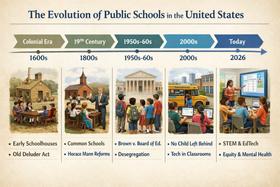The term “gifted” has been thrown around in public education circles for decades – often misused, misdiagnosed and misunderstood. Gifted children may present in various ways; some are positive characteristics and some, are not as desirable. When determining giftedness in a student, it is essential to take a number of factors into consideration, since not all gifted children will exhibit the same characteristics at the same time. This list offers 10 of the most common characteristics seen in gifted students.
Verbal Ability
Gifted children often begin communicating verbally at an early age, and they use vocabulary far beyond their age. These children are often referred to as “precocious” because of their language usage. The website for Amend Psychological Services list some of the verbal features of gifted children as “avid storytellers,” early talkers or those with and extensive and precise vocabulary. These children often choose their words carefully, but tend to use a lot of them. They can also get frustrated with children in the same age group who are unable to understand them and often turn to older children or adults for conversation.
Information Processing
Education.com states that gifted children often have an “unusual capacity for processing information” and are often able to process that information more quickly and accurately than their peers. These children typically master subjects like reading and math much more quickly than their peers, which can make it difficult to keep them challenged in a regular school setting. Bright Hub Education explains that some gifted children become disruptive in classrooms – often because they are bored with the material that is taught over and over again.
High Curiosity Level
Gifted children often have a high curiosity level and dive into subjects with a passion not seen in most children their age. Amend Psychological Services says it is not unusual for a gifted child to learn the names of all the dinosaurs or the stats for every player on a baseball team at a very young age. Beth Israel Deaconess Medical Center calls this characteristic a “deep absorption in activities that interest them,” and parents of gifted children learn quickly just how saturated that absorption can go, when they have to take a child to the library or help them find facts on the Internet over and over again.
Memory Retention
Gifted children are often able to retain information faster and for longer periods of time than average children of the same age. Their rapid learning ability allows them to process facts quickly and retain them for efficient recall later on. High memory retention combined with fast information processing often means these children learn subjects at a rapid-fire rate that can make it challenging for parents and teachers to present information to gifted children as fast as they like.
Intensity and Persistence
Many gifted children are intense in the way they learn, which is often why they pick up large amounts of information so quickly. They can also be intense socially, with acute sensitivity to the needs and feelings of others, according to Education.com. These children are able to show compassion to others at a much deeper level than other children their age. However, the intensity and persistence can also work against a gifted child on occasion, when the child encounters a problem he cannot easily solve or a topic he cannot seem to master as quickly.
Sense of Humor
Gifted children are enjoyable to be around because many exhibit a sense of humor that goes well beyond their years. Bright Hub Education states that these children often have a special appreciation for more subtle types of humor like satire. They also enjoy plays on words, such as puns, and are particularly adept at using these comic techniques themselves. Whether their sense of humor comes out in their conversation or their writing, these students can be a joy to converse with.
Sense of Justice
Gifted children often have an acute sense of justice, which can translate to high expectations of themselves and others. While their strong moral compass can make them effective leaders, and ensure good choices in many situations, this characteristic can also make it difficult for them to forge long-lasting relationships with others. These children often become interested in justice and fairness at a very early age, which continues throughout their lives.
Strong Imagination
Gifted children often exhibit a strong imagination, with an ability to spin tales that parents and teachers do not necessarily expect. Education.com says these children often show originality in their oral, written or artistic expression and are viewed as highly creative. Gifted children may spend time fantasizing, and are often categorized as independent thinkers.
Keen Observation
Children who fall into this group may have the ability to pick on details much more acutely than other children in the same age bracket. Whether reading a book, watching a movie, gifted students often notice seemingly nonessential pieces of information that others might miss. Their attention to detail often results in long, drawn out renditions of situations or conflicts – a frequent source of frustration for parents and teachers at times.
Problem Solving Capabilities
Often perceived as effective problem solvers, gifted children typically relish nothing more than breaking down a complex issue and finding a solution that no one else has every thought of. These children, according to Education.com, have an “advanced cognitive and affective capacity for conceptualizing societal problems” – the potential leaders of the future.
Labeling a child as “gifted” is a somewhat complex process that involves careful observation and objective testing in most cases. While this list is not an exhaustive one, it does provide insight into some of the most common characteristics of gifted children to help teachers and parents know whether further assessments are warranted.
Questions? Contact us on Facebook @publicschoolreview.












